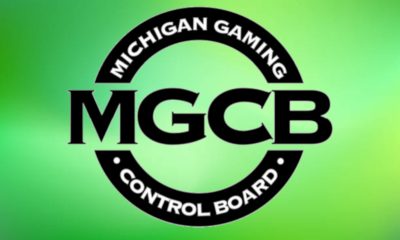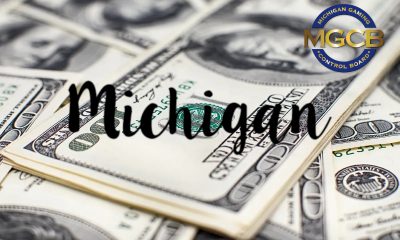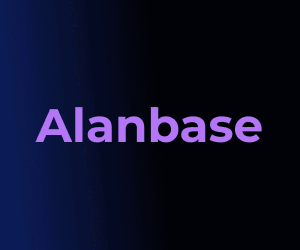Compliance Updates
Michigan Gaming Control Board joins gaming states coalition urging USDOJ to prioritize combating illegal, offshore sportsbooks and online casinos
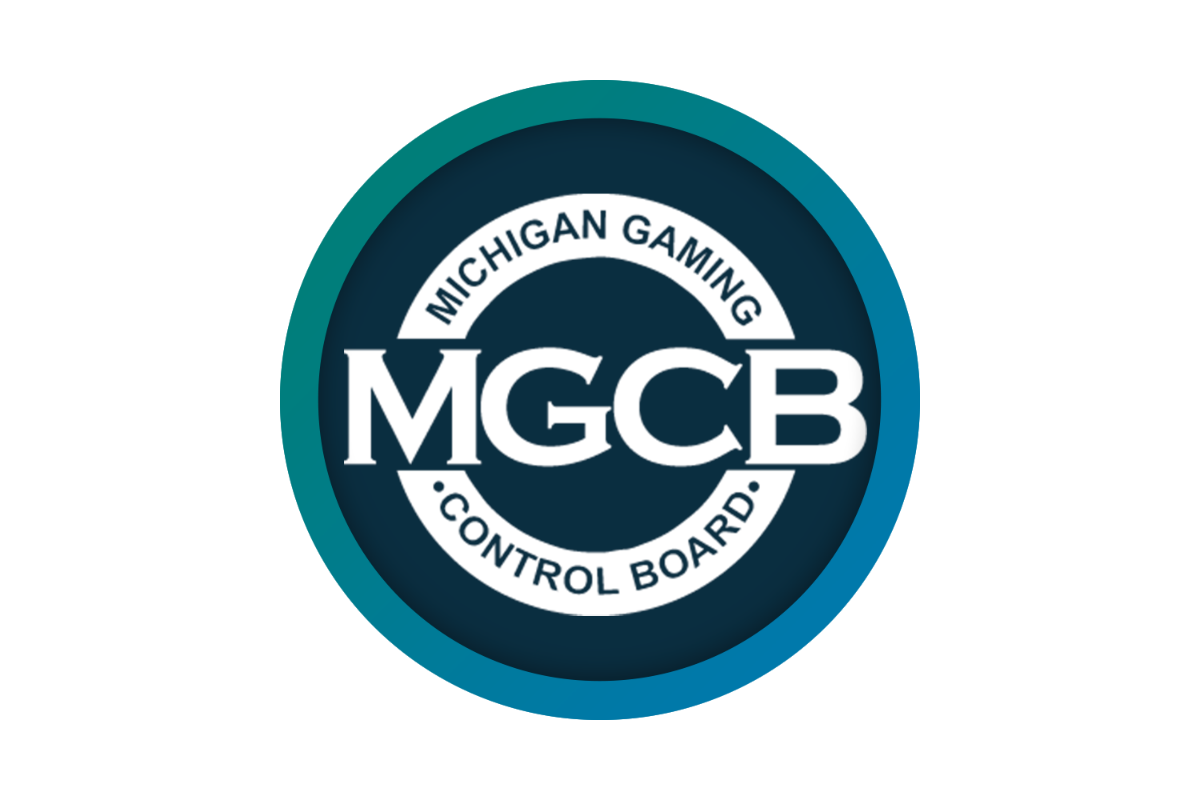
The Michigan Gaming Control Board joined a coalition of seven gaming states’ regulators urging the U.S. Department of Justice to make combating illegal, offshore sportsbooks and online casinos a priority. In an April 28 letter, MGCB Executive Director Henry Williams and fellow state regulators asked Attorney General Merrick Garland to address the significant threats offshore illegal gambling poses that state regulators cannot tackle alone.
“In Michigan, strict laws and rules govern internet gaming and sports betting and provide consumer protections, promote confidence and ensure fair and honest gaming,” Williams said. “We are willing to help the U.S. Department of Justice in any way we can as it pursues enforcement of U.S. laws against offshore illegal gaming enterprises that take advantage of our citizens.”
Other state regulators signing the letter represent Colorado, Illinois, Louisiana, Mississippi, New Jersey and Nevada, and Nevada Gaming Control Board Chairman Kirk D. Hendrick sent the letter to Attorney General Garland. In the letter, the seven states’ gaming regulators note the dangers posed by illegal offshore wagering sites, including:
- Lack of investment in responsible gaming programs
- No age verification requirements to protect minors
- No controls to prevent money laundering
- No guarantees of fair payouts for customers
- Loss of state tax revenue that funds important initiatives like education
Offshore operators do not undergo nor comply with strict licensing requirements imposed on legal, regulated operators. They also are not subject to the scrutiny of state regulators who conduct thorough suitability and background investigations of regulated operators as required by state laws.
“State regulators like the MGCB ensure operators offer products that pass technical standards and testing, and we also require operators to comply with reporting requirements,” Williams said. “Offshore operators flaunt state regulations and offer products that do not protect the public, which greatly concerns me and my fellow state regulators.”
In the letter, the state regulators noted they are proud of the work they do to protect the public, including enforcing payout requirements and dispute resolution procedures. Unlike their regulated counterparts, illegal operators simply may disappear with their customers’ funds and provide no resources to assist those who may need help. Regulated operators recognize licensing is a privilege that can be taken away, but illegal operators do not face similar consequences for failure to follow laws and maintain integrity.
The gaming states’ regulators provide supervision and enforcement, but the regulators point out in their letter that illegal operators do not answer to any authority. The state regulators hope the U.S. Department of Justice can address these critical issues through leadership in enforcement action against offshore operators.
“The Michigan Gaming Control Board shall ensure the conduct of fair and honest gaming to protect the interests of the citizens of the State of Michigan.”
Compliance Updates
Elys BMG Group Announces Approval for The Ugly Mug Sportsbook in Washington, DC.

Elys BMG Group announced that The Ugly Mug in Washington D.C. has been granted provisional approval from the District of Columbia Office of Lottery and Gaming Regulation and Oversight Division (DCOLG) to open its sportsbook at 723 8th St. SE. As the fourth privately owned sportsbook venue in the District powered by Elys’ innovative Gameboard betting technology, The Ugly Mug stands as a testament to Elys’ commitment to bringing cutting-edge solutions to local businesses and sports enthusiasts.
The grand opening for The Ugly Mug sportsbook is anticipated to occur during the week of April 27th. Elys will unveil the grand opening festivities, promotions, and events as the date draws closer.
With easy access to sports wagering and a classic American menu in a relaxed setting, The Ugly Mug sportsbook is set to become a premier destination in the Navy Yard region of Washington D.C. and is another step forward for Elys becoming the leading betting technology provider for neighborhood sportsbooks in the US.
Compliance Updates
eCOGRA Authorized to Offer Certification Services in Brazil

eCOGRA, the Internationally renowned Independent Testing Laboratory, has been officially authorized by the Secretaria De Prêmios e Apostas (SPA) to operate as a certifying entity for betting systems, live gaming studios, and online games in Brazil. This announcement marks a significant milestone as eCOGRA continues to extend its international offering of iGaming testing, inspection, and certification (TIC) services in regulated markets across the globe.
The announcement comes two months to the day after eCOGRA received approval to operate as a Certification Laboratory in Peru. The organization now operates in 39 online gambling jurisdictions, including Buenos Aires City and Province, Peru, Mendoza, Colombia, and Brazil in South America.
Since its establishment in 2003, eCOGRA has been at the forefront of online gambling certification, providing assurance on fairness and safety to players while offering the highest standards in TIC services to industry operators and software providers seeking to comply with regulatory requirements. The approval to operate in Brazil reflects both the trust eCOGRA has built in the international iGaming community and the quality of its certification services.
Bradley Khoury, Chief Technical Officer of eCOGRA, said: “We are thrilled to bring over two decades of expertise in online gambling certification to the vibrant market of Brazil. This approval from the Secretaria De Prêmios e Apostas (SPA) of the Brazilian Ministry of Finance is not only a testament to our unwavering commitment to the highest standards of competence and quality but also marks an exciting new chapter for eCOGRA. We look forward to working closely with Brazilian operators and interested parties to ensure a safe and fair gaming environment for all players.”
The new Brazilian regulatory framework aims to effectively safeguard player interests and enhance the integrity of online gambling operations within the country.
“Brazil offers a dynamic and rapidly growing market, and we are excited to contribute to its development. Our goal is to ensure that Brazilian players have access to certified iGaming experiences, akin to what has successfully been implemented in other highly regulated jurisdictions,” Khoury added.
Operators and software developers offering in the federal Brazilian jurisdiction seeking to comply with the laws and regulations by undergoing testing, inspection, and certification can now turn to eCOGRA for their renowned services, assured of their commitment to quality, impartiality, and fairness.
Compliance Updates
IGT and Acres to Resolve All Pending Litigation

International Game Technology (IGT) and Acres 4.0, Acres Manufacturing Company, and John Acres (Acres) announced that effective April 12, 2024, they have reached an agreement to resolve all legal disputes between the two companies. Terms of the settlement have not been announced.
The resolution was reached in the US District Court of Nevada, directed to US patents that pertain to facilitating use of a financial transaction device in a cashless wagering system in a gaming system, and Nevada State Court directed to a breach of contract claims.
“IGT is pleased to reach a mutual agreement with Acres that resolves all disputes between us. This allows us to dedicate our collective resources where they are better served, driving continued innovation in the exciting and evolving cashless gaming space,” said Nick Khin, IGT COO Gaming.
“We are thrilled to put this matter behind us and work cooperatively with IGT to build exciting new gambling experiences that can increase both player enjoyment and casino profits,” John Acres, CEO of Acres, said.
-
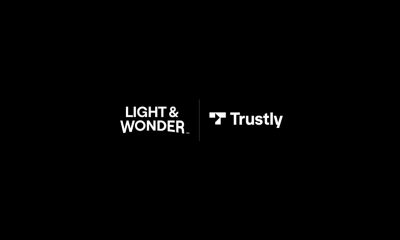
 Latest News4 days ago
Latest News4 days agoLight & Wonder Taps Trustly to Power Cashless Payments at Casinos
-
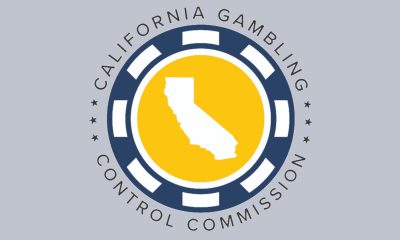
 California7 days ago
California7 days agoCalifornia Gambling Control Commission Approves Key Licensing Decisions Amid Regulatory Updates
-

 Latest News4 days ago
Latest News4 days agoKingMidas Games Unveils Cutting-Edge Range of Multiplayer Games
-

 Latest News1 day ago
Latest News1 day agoAEG and Yaamava’ Resort & Casino at San Manuel Announce 16th Year in Partnership, Shaping the Future of Sports and Live Entertainment Across Southern California
-
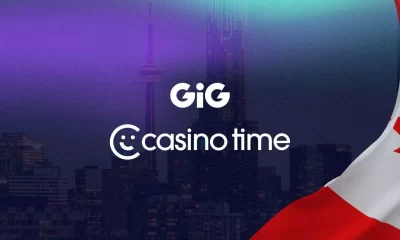
 Canada1 day ago
Canada1 day agoGiG increases Ontario market presence, powering the launch of Casino Time
-

 Latin America2 days ago
Latin America2 days agoCGS Events Revolutionizes the Chilean Gaming Scene with the Launch of CGS Santiago in its Fourth Edition
-

 Gambling in the USA1 day ago
Gambling in the USA1 day agoPlay’n GO announces expansion of BetMGM partnership with Pennsylvania launch
-
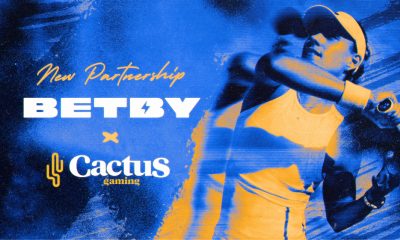
 Latin America1 day ago
Latin America1 day agoBetby Forges Strategic Partnership With Latam Powerhouse Cactus Gaming








